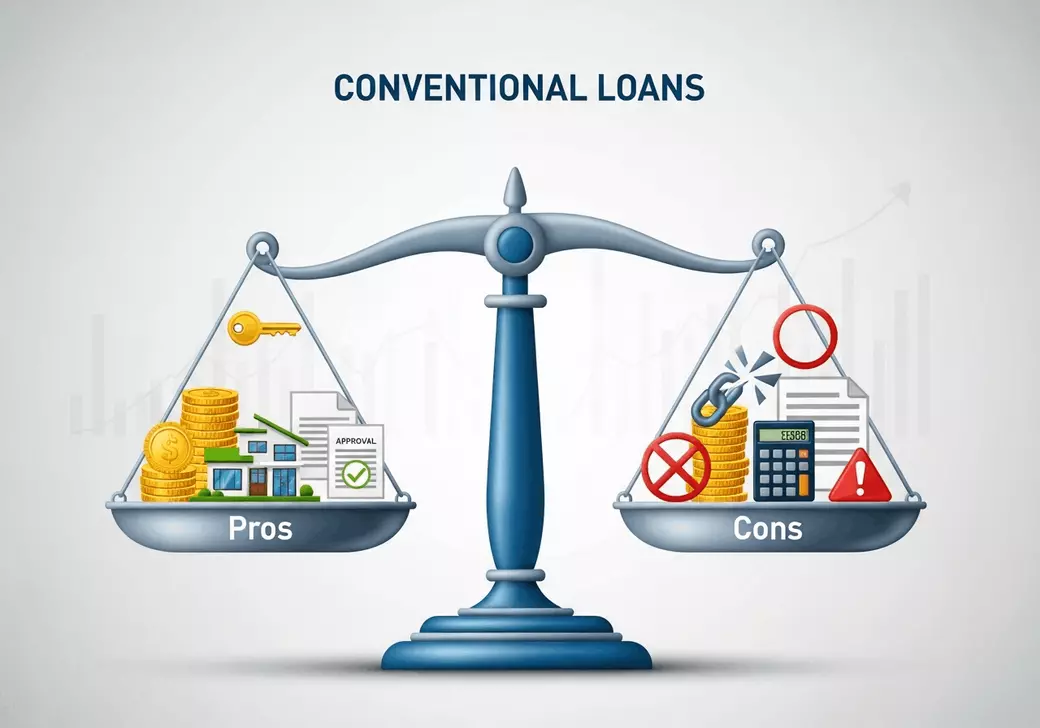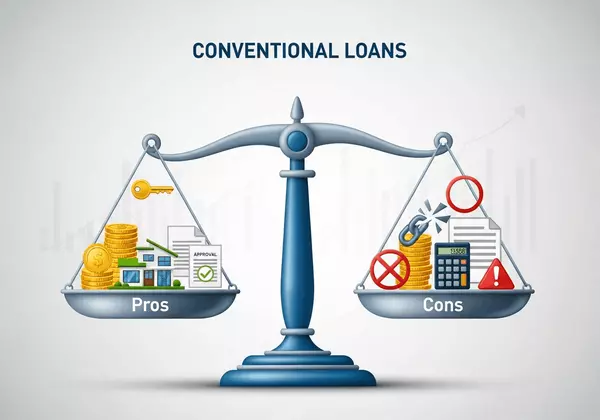Understanding Conventional Loans: Pros, Cons, and When They're the Right Choice

Understanding Conventional Loans: Pros, Cons, and When They're the Right Choice
When you’re thinking about buying a home, the world of mortgages can feel overwhelming. One of the most common options you’ll encounter is the conventional loan. But what exactly is a conventional loan, and how do you know if it’s the right fit for your needs? Let’s break it down together.
What is a Conventional Loan?
A conventional loan is a type of mortgage that isn’t backed by the government. Unlike FHA, VA, or USDA loans, conventional loans are offered by private lenders such as banks, credit unions, and mortgage companies. Most of these loans follow standards set by Fannie Mae and Freddie Mac, making them "conforming" loans. There are also "non-conforming" conventional loans for borrowers who don’t fit the typical mold.
Pros of Conventional Loans
- Flexible Terms: You can choose from a variety of repayment schedules, often ranging from 10 to 30 years.
- Lower Overall Costs: If you have strong credit and a solid down payment, you’ll typically enjoy lower interest rates and fewer fees than government-backed loans.
- No Upfront Mortgage Insurance: Unlike some government loans, you don’t have to pay upfront insurance premiums. Private mortgage insurance (PMI) is only required if your down payment is less than 20%—and it can be removed once you reach 20% equity.
- Higher Loan Limits: Conventional loans often allow you to borrow more than FHA loans, especially in high-cost areas.
Cons of Conventional Loans
- Stricter Requirements: You’ll usually need a higher credit score (often 620 or above) and a larger down payment (at least 3%, but 20% is ideal to avoid PMI).
- Private Mortgage Insurance: If you put down less than 20%, you’ll need to pay PMI until you build enough equity.
- Not Ideal for Low Credit: If your credit isn’t stellar, you might face higher rates or even struggle to qualify.
When Should You Use a Conventional Loan?
Conventional loans are a great choice if you:
- Have good to excellent credit
- Can make a larger down payment
- Want more flexibility in loan terms
- Are buying a higher-priced home
They’re especially attractive if you want to avoid ongoing mortgage insurance costs or want to refinance later with fewer restrictions.
When Should You Consider Other Options?
If you have a lower credit score, limited savings for a down payment, or need special assistance (such as being a first-time homebuyer or a veteran), government-backed loans like FHA, VA, or USDA might be a better fit. These options often have more lenient requirements and lower upfront costs.
Final Thoughts
Choosing the right mortgage is a big decision, but understanding the pros and cons of conventional loans can help you make a confident choice. If you’re financially prepared, conventional loans offer flexibility and long-term savings. But if you need a little extra help qualifying, don’t hesitate to explore other options. The perfect home—and the perfect loan—are out there waiting for you! For personalized guidance on your mortgage options, contact us today, and we'll connect you with our trusted partner lenders.
GET MORE INFORMATION



